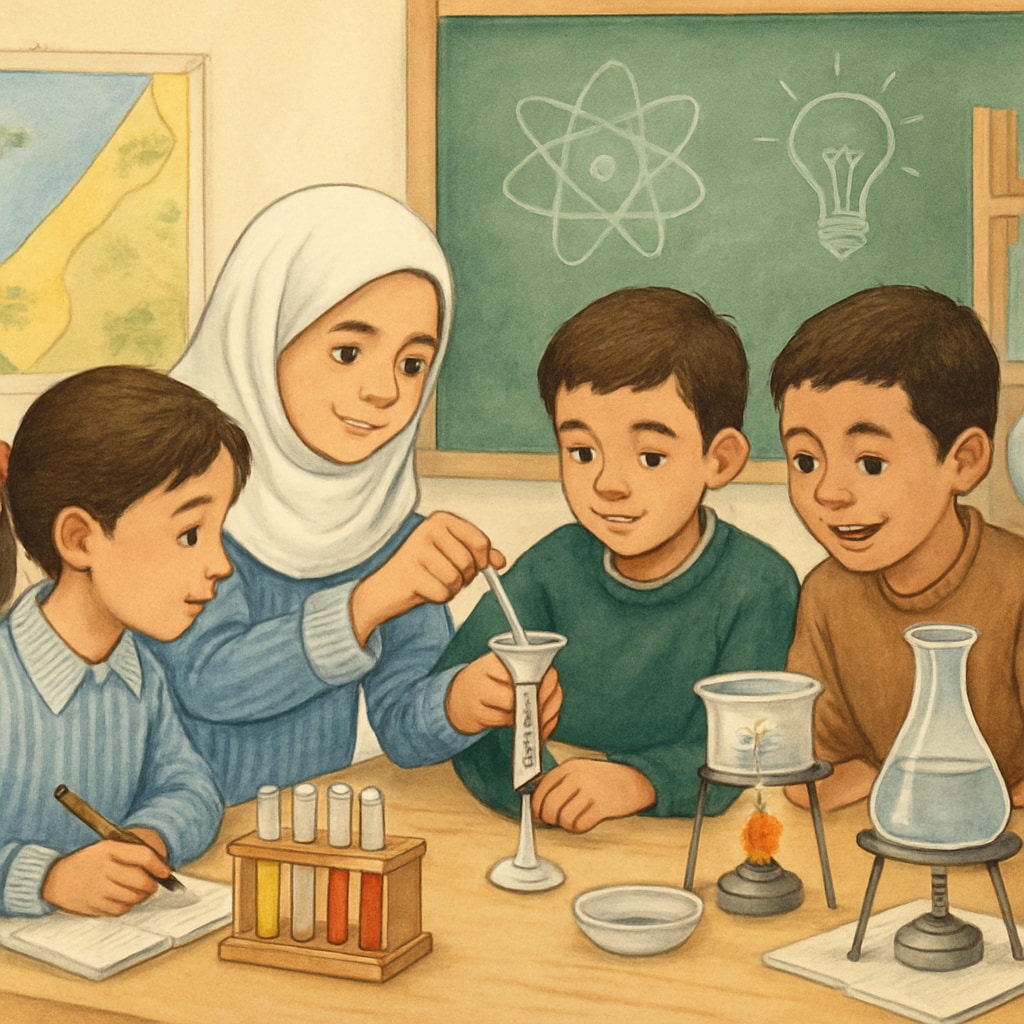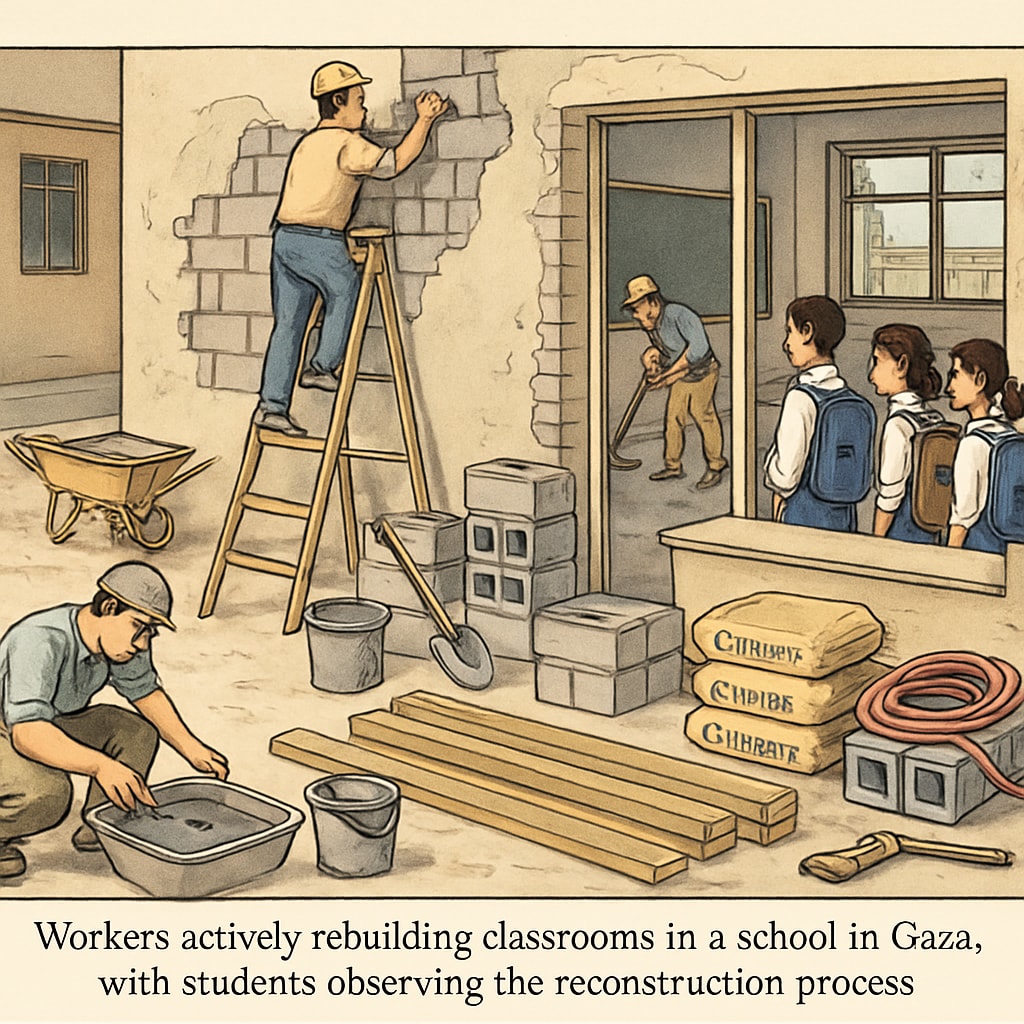The process of rebuilding education in post-conflict zones like Gaza requires innovative approaches to curriculum design. Developing science and social studies curricula for Gaza schools is not only about imparting knowledge but also about fostering critical thinking, cultural understanding, and sustainable development. As schools resume operations, an effective teaching framework becomes essential to help children navigate their disrupted lives and envision a peaceful future.

The Importance of Science and Social Studies in Gaza’s Education Recovery
Science and social studies are foundational subjects that play a crucial role in shaping young minds. Science encourages curiosity, problem-solving, and innovation—skills that are vital for rebuilding infrastructure and addressing environmental challenges. Social studies, on the other hand, promote cultural awareness, empathy, and historical understanding, which are critical for fostering unity in a community that has endured hardship.
In Gaza, where children have faced the trauma of conflict, these subjects can serve as tools for healing. For example, science classes can include lessons on sustainable practices to improve local resources, while social studies can focus on discussions about peacebuilding and mutual respect. These subjects, when properly integrated into the curriculum, can help students develop the skills and values needed to rebuild their society.
Challenges in Developing Curricula for Post-Conflict Gaza
Creating an effective curriculum for Gaza schools comes with unique challenges. The physical destruction of schools, limited access to educational materials, and the psychological impact on both students and teachers must be addressed. Additionally, sensitivity to cultural and societal dynamics is essential to ensure that the curriculum resonates with the community.
Another challenge is balancing local relevance with global standards. While it is important to align with international educational benchmarks, the curriculum must also reflect the specific needs and aspirations of Gaza’s population. For instance, incorporating lessons on local geography, history, and environmental issues alongside universal scientific principles can create a more relatable and impactful learning experience.

Strategies for Building an Inclusive Curriculum
To overcome these challenges, curriculum developers can adopt several strategies:
- Community Engagement: Involve local educators, parents, and students in the curriculum design process to ensure relevance and inclusivity.
- Peace Education: Integrate themes of conflict resolution and cooperation into social studies lessons to promote harmony.
- Hands-On Learning: Include practical science experiments and fieldwork to make lessons engaging and applicable to real-life scenarios.
- Global Collaboration: Partner with international organizations to provide resources, training, and guidance for curriculum development.
By implementing these strategies, educators can create a robust and transformative curriculum that meets the needs of Gaza’s children while preparing them for future opportunities.
The Role of Education in Gaza’s Long-Term Recovery
Education is a cornerstone of societal recovery. Beyond academics, schools in Gaza must serve as safe spaces where children can express themselves, heal, and grow. Science and social studies curricula designed with intention can help students connect with their environment, understand their history, and envision a better future.
For example, science lessons could inspire students to think critically about renewable energy solutions for Gaza, while social studies discussions might encourage them to reflect on their role in building a peaceful community. These subjects have the power to transform classrooms into incubators of hope, resilience, and innovation.
In conclusion, the rebuilding of Gaza schools is not just about reconstructing buildings—it is about reconstructing futures. A thoughtfully designed curriculum in science and social studies can empower children to overcome the challenges they face and contribute positively to their society. By focusing on critical thinking, cultural understanding, and sustainability, educators can provide Gaza’s youth with the tools they need to thrive in a post-conflict world.


